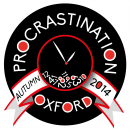Not all procrastination is created equal. It is a capacious concept, it contains multitudes. While the word always suggests postponement and delay, whether this is negative or positive is more contentious.
Decisiveness is not necessarily a virtue—’more haste, less speed’, after all—while deferral can also mean defiance. Even acknowledged time-wasting can take quite different forms, with quite different moral valences. The ends may justify the means: your tweedy-browed academic, waxing lyrical over the Sauternes, is quite happy to admit to some procrastination while a team of subconscious elves do the hard work of creativity (Stephen King rather creepily calls them ‘the boys in the basement’).
The means themselves vary in moral resonance too. Cleaning the house or immediately answering emails make you a good citizen. Self-improving procrastination (reading poetry, say) also seems somehow superior to endless consumption of TV or YouTube cats. These moral valences are not static or universal: the value of the leisurely musing young aristocrat or the uncommitted political leader has risen and fallen. One man’s brave refusenik is another man’s pretentiously idle French stereotype.
Here, then, is a first attempt at sketching a hierarchy of procrastination, as it appears to a middle-class Millennial in the town of Oxford in February 2014. (Click here for PDF.) What do you think?
Is the hierarchy neatly linear, or do we need to differentiate between the individual and the social? Can inactivity with external causes (structural unemployment, a culture of endless boardroom meetings) truly be called procrastination, or are behavioural economists correct in seeing it as the ‘quintessential self-regulatory failure’? How does this hierarchy vary over time and space? Does it, in the end, all come down to successful outcomes—or to social class?


